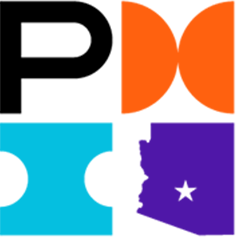Originally published on Linkedin on March 24, 2020
by Sunil Prashara, President & CEO at Project Management Institute
Every organization in the world is currently confronting the challenge of moving forward amidst the COVID-19 pandemic while balancing the safety and well-being of their teams. In just a short period of time, we have been called upon to make rapid changes, sacrifices and adjust the ways that we work and live. Many of these new working practices are going to stick, i.e. they won’t be temporary, and I’m pretty sure our collective recovery from COVID-19 will mean how we work in the future will be very different.
During these uncertain times, I want to assure you that PMI is here to support you. As we adjust to a new norm, PMI remains laser-focused on being a resource for our members, certification holders, and key stakeholders around the globe.
Some organizations already operate on a full-time basis in a virtual work environment and we have been learning from these. For most of us, the challenges we are experiencing remind us the importance of virtual learning options and customizable digital services.
At PMI, we stand ready to provide you with resources, connect you to your community of peers, and help you continue advancing your professional development from wherever you may be.
Here are examples of our current and upcoming digital products that can benefit you:
PMP Online Proctor Testing
We are targeting mid-April for exam candidates to have the option to take the Project Management Professional (PMP) exam online from their office or home. More details will follow.
As a reminder, the PMI Agile Certified Practitioner (ACP) and Certified Associate in Project Management (CAPM) certifications can already be taken online.
Brightline Digital Learning and Micro-Certification
Beginning in early May, you can benefit from this online course on digital transformation and help to differentiate yourself with new knowledge. For existing PMI certification holders, this course will also be eligible for professional development units (PDUs). Stay tuned for more information.
Project Management for Beginners
Made available for free during these uncertain times, Project Management for Beginners is an introductory course which provides the foundational knowledge necessary to join a project team and can serve as the first step on your path to a project management career.
Agile in the PMO
Currently being offered at no cost, this course will position you as a PMO director, walking you through a series of scenarios designed to improve your project management office's performance using agile principles and processes.
Business Continuity
Currently being offered at no-cost, this course is timely and relevant. With more companies asking employees to work from home and in-person industry events going virtual, COVID-19 has created an immediate need to rethink work processes.
To ensure the safety and health of their workforce, while facilitating business continuity, organizations must adapt in real-time to ensure remote teams are engaged, virtual collaboration is productive, and necessary compliance standards are met.
The Business Continuity course is here to help. We’ve pulled together fan favorites to help leaders and their employees adapt during this difficult time.
Disciplined Agile Basics
This April, gain an introduction to Disciplined Agile and new ways of working (while earning PDUs) with this comprehensive online course. More info coming soon.
Navigator- Beta
Available at no-charge now, Navigator serves as “the portal into PMI” – a career development platform for project professionals. The platform offers opportunities for comprehensive self-assessment of skills, interests, and goals while offering an action plan to achieve your objectives.
PMI Study Hall - Beta
Offers candidates a sneak peek into new PMP exam resources. Offering includes outlines of exam content, daily practice questions, tips from experts, and resources for preparing for the exam.
Virtual Events
COVID-19 may have upended travel plans around the globe, but PMI is still driving forward on a variety of virtual events and learning opportunities, including PMXPO on 26 March, our largest virtual event of the year (available on-demand following the event), and SeminarsWorld®, offering small group discussions and hands-on learning across a range of subject areas. Take advantage of these opportunities to learn, network, and engage from home.
Standards+ - Beta
If you’re a project professional looking for reliable resources to complement the PMBOK® Guide 6th edition, you can benefit from digitized tools, templates and case studies in late-April. Try out our Beta version now.
Snippets - Beta
Available for a free trial today, Snippets offers bite-sized learning for professionals seeking quick, reliable, and relevant project learnings.
Tower Game
Available at no-cost through the PMI Educational Foundation, the Tower Game is a fun project management exercise that can be used by students of all ages, as well as adults. The game teaches participants to consider time, cost, quality, and risk. The game can be used as an ‘ice breaker’, a stand-alone exercise or as part of a class. Available in 17 languages.
Micro-certifications
Access specialized learning and assessment tools to help you differentiate yourself and gain new skills. Look out for more of these opportunities this summer.
Each digital offering in our ecosystem reinforces the others while offering practitioners the ability to customize their unique learning journeys. Our goal is to enable practitioners to accelerate their acquisition of the knowledge, skills, and capabilities that employers seek.
We live in a time of unprecedented challenges. I firmly believe that project managers will play an increasingly important role in helping their organizations to continue delivering value and navigating change.
We are ready. Ready to support each step of the way with offerings like these and with more to come in the future.



